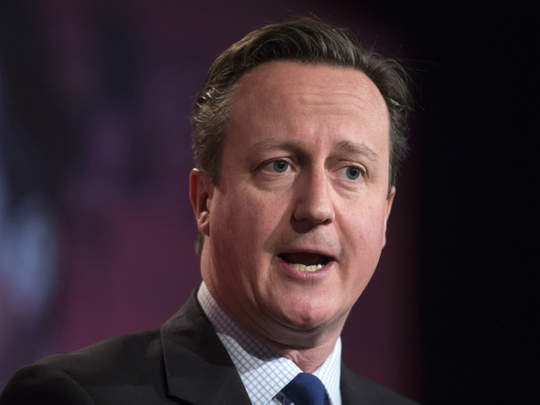
British politics seems to be heading for a constitutional crisis after elections on May 7. Recent polls suggest the Scottish National Party (SNP) will take almost all of Scotland’s seats at Westminster from Labour. Regardless of whether Labour or the Tories lead a new government, the SNP’s support may be needed to pass legislation. A party committed to breaking up Britain would be a decisive force in the Union’s parliament.
Conceivably, the SNP could make a good-faith effort to help a Labour-led government run Britain ideologically. After all, the two parties are well-aligned. But fruitful cooperation is unlikely. The SNP’s strategic interest will lie in crippling the Westminster system and making England its ally in the drive for Scottish independence. The more friction the SNP can cause — outright paralysis, ideally — the louder will be the demands in the south for Scotland to go. Division, not good government, serves the SNP cause.
That is why the SNP is also unlikely to do the right thing by recusing itself from voting on English law. That would surrender its leverage — as well as making a Labour-SNP coalition largely impotent. Even if the party did commit to responsible all-Britain governance, the constitutional impropriety would be outrageous. The long-standing anomaly known as the West Lothian question would assume horrendous proportions. Scotland has its own parliament and a generous measure of home rule. By what right, then, could its members in Westminster take it upon themselves to decide laws affecting England and Wales in the many areas of policy that have already been devolved to Holyrood?
In short, it was wrong to think, as many did, that the SNP’s defeat in last year’s referendum settled the question of independence. Far from marginalising the party and its cause, that loss has prompted a remarkable surge of support.
One wonders why. On the face of it, the argument for independence looks much less appealing now than it did during the referendum campaign. The SNP’s case rested heavily on oil revenues. Its arithmetic was bogus even before oil prices plunged. Today, making the numbers even seem to add up would be impossible. How come support for the SNP is so strong?
I suspect many Scots are ashamed that they bowed to prudence last year. They feel that the SNP fought the better, nobler campaign (despite its fiscal dishonesty) and that the unionist side made a weak case and did not deserve to win. (Scottish Labour’s campaign for the Union seems to have caused particular offence.) At any rate, many Scots voted reluctantly for the Union. I think the polls express a desire to atone for this timidity by sending the SNP in force to London. The Scots may not be thinking too hard about where this choice will actually lead.
Whatever the cause of surging SNP support, a big SNP block in Westminster would be toxic to the union.
Ed Miliband, Labour’s leader, has come under pressure to rule out a post-election pact with the SNP. Some Scottish Labour MPs like this idea because it could improve the party’s chances of turning back the SNP surge. You may expect Miliband to go along with it too. He is telling Scots that a vote for the SNP is really a vote for the despised Tories — and this argument would be stronger if he credibly promised to cut no deal with the SNP. But here is Miliband’s dilemma: This promise, if kept, may very well deny him the ability to form a government and keep him out of 10 Downing Street.
However, complex and unpredictable the short-term political manoeuvrings may be, Britain’s longer-term choices about its system of government come down to two. The first is outright independence for Scotland. The Scots, if they thought about it, might want this less than they did before — but, regardless, by sending SNP members to Westminster they will further destabilise the British constitution and energise support for Scottish independence in England.
The other choice is moving Britain to a federal model. In principle, this may look attractive, but in practice, it will be hard to pull off. Federal systems can tolerate only so much imbalance among the constituent states and Britain’s economy and population are just too heavily skewed towards England. In the end, Scots must get comfortable with being a small piece of a medium-sized nation — or else go it alone.
— Washington Post
Clive Crook is a Bloomberg View columnist and a member of the Bloomberg View editorial board.








